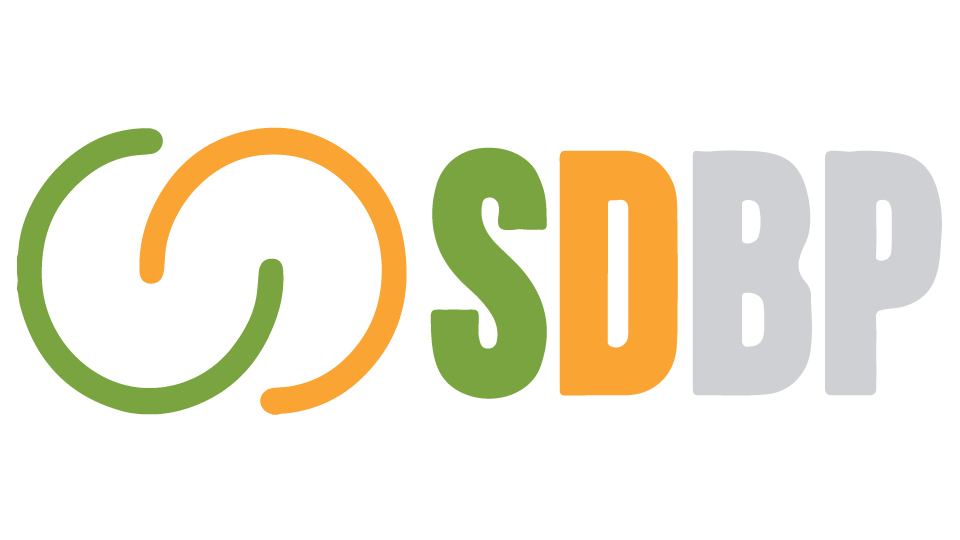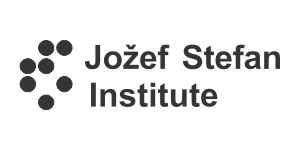- Learn from and exchange knowledge and skills directly with leading experts and practitioners of the circular economy
- Circular portfolio analysis and circular self-assessment
- Practical guidelines and hands-on assistance towards a circular transformation
- Identification and acquisition of new competencies for business model transformation
- Understanding the nature of financing and options for circular models
Why chose CBA?


Discover CBA Courses
Our new e-learning platform is designed to equip businesses, entrepreneurs and other professionals with the knowledge and skills needed for circular business transformation. Our learning resources delve into the principles and strategies of the circular economy, providing practical insights and actionable knowledge that businesses can immediately implement. Explore our platform and be part of the movement towards a more sustainable future.
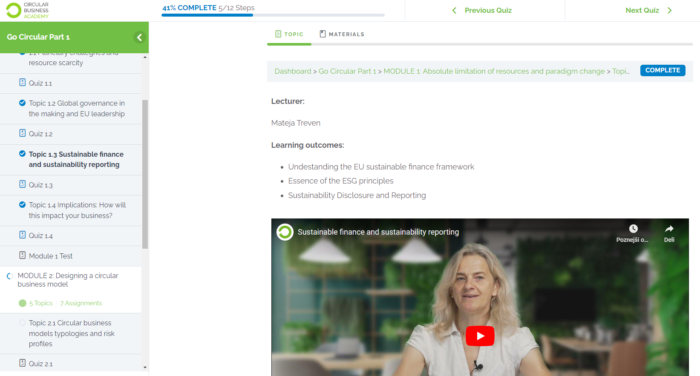
CBA Tools for circular transformation
Our circular transformation tools enable businesses to assess their circular potential, design lean and sustainable business models, and develop effective strategies for transitioning to a circular economy.
Circularity Assessment Score (CAS) is a tool that assess circularity from the aspect of the firm’s value chain to a degree of their full exploitable potential (circular business model potential) and from the aspect of the managerial abilities and overall organisational practices to seize the business model potential (commitment). By completing CAS questinnaire, you will obtain your CAS Report offering insights and recommendations to enhance your circularity.
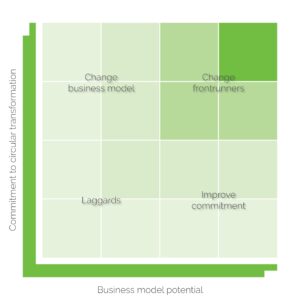
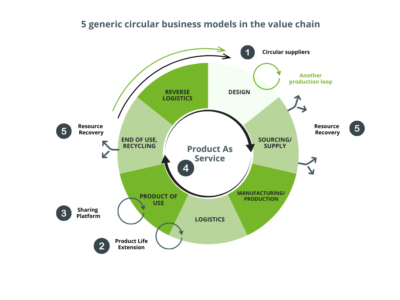

Accept the challenge
Challenge Circularity serves as a collaborative platform that brings together key actors from various sectors to address the complexities of transitioning to a circular economy. Through workshops, webinars, and networking events, the club facilitates knowledge sharing and fosters partnerships among members. By leveraging the collective expertise of its participants, the club aims to drive circular innovation and showcase the societal and environmental benefits of a circular economy.
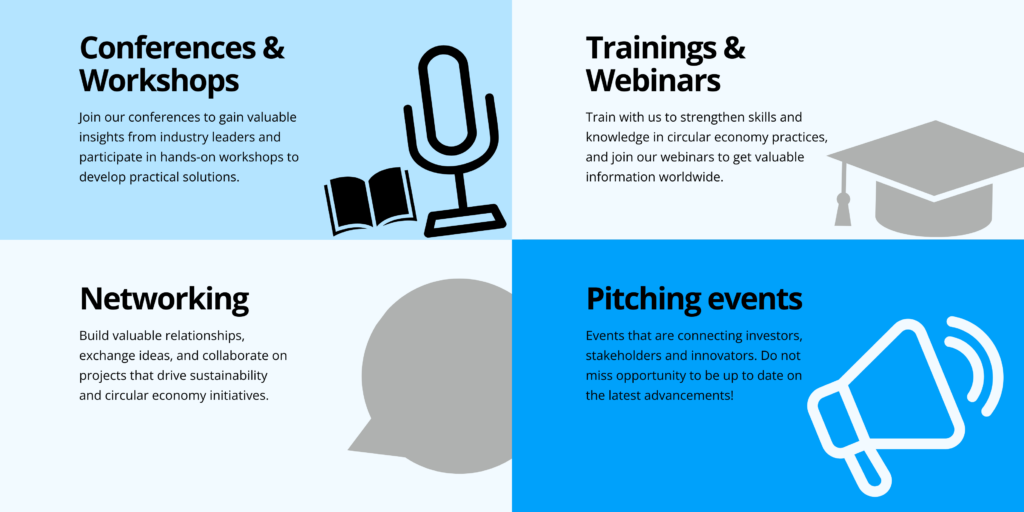
The Circular Triangle
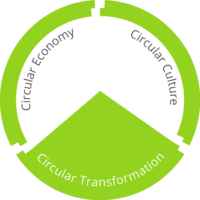
Circular Economy is a multi-layer systemic transition:
A journey through technological discontinuities, emerging regulatory issues, shifts in fiscal (taxation) and supply-side policies, targeted public investments and other incentives.
Circular transformation is a corporate transformation:
A circular business model (re)design; cross-industry value chains and cooperation; innovation management; acquisition of new competencies.
Circular culture values and societal dynamics:
Stakeholder relationships, citizen actions, aggregate consumer preferences, industry relations and the future of work.
International CBA Faculty
Lectures and project work are conducted by selected speakers and advisors with early experience, including members of the faculty, guest speakers and testimonials of best practices.

Jurij Giacomelli, MSc
Circular business models, corporate transformation, investing

Karin Huber-Heim, MSc
Sustainable development and the circular economy

Christiaan Kraaijenhagen, MSc
Implementing the circular transformation

Massimo Sbarbaro, PhD
Historian, researcher of medieval economic history through IT

Christoph Püntmann, PhD, MSc
Financial expert and advisor

Slaven Mičković, PhD
Risk assessment, mitigation for circular business models
Partners




